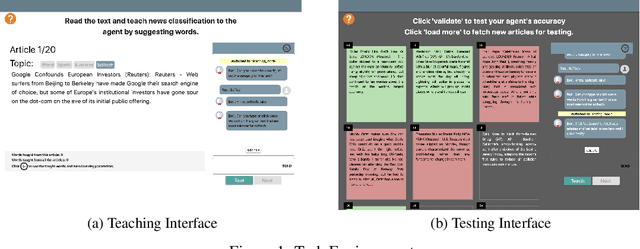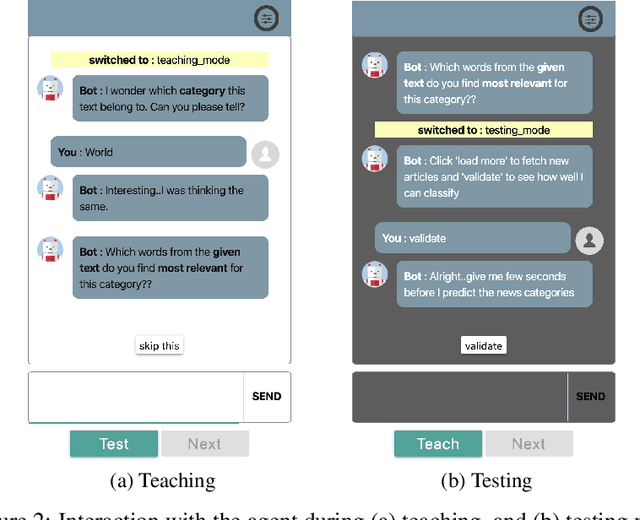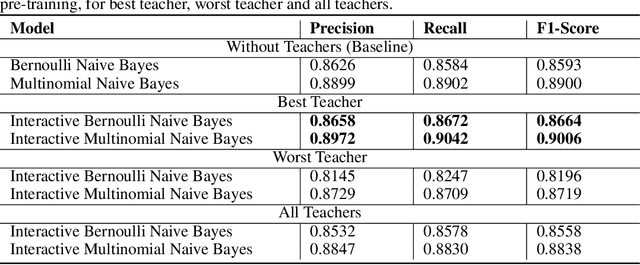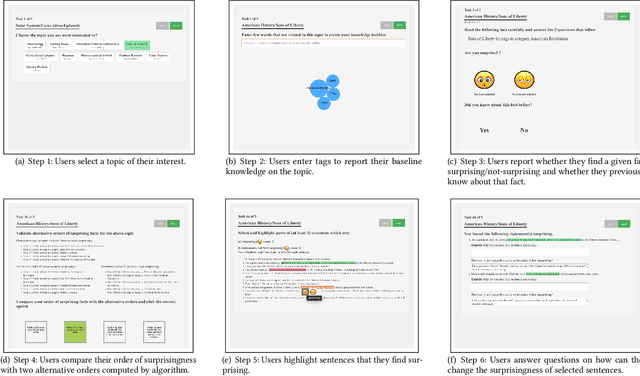Nalin Chhibber
Towards Teachable Conversational Agents
Feb 20, 2021



Abstract:The traditional process of building interactive machine learning systems can be viewed as a teacher-learner interaction scenario where the machine-learners are trained by one or more human-teachers. In this work, we explore the idea of using a conversational interface to investigate the interaction between human-teachers and interactive machine-learners. Specifically, we examine whether teachable AI agents can reliably learn from human-teachers through conversational interactions, and how this learning compare with traditional supervised learning algorithms. Results validate the concept of teachable conversational agents and highlight the factors relevant for the development of machine learning systems that intend to learn from conversational interactions.
Human Perception of Surprise: A User Study
Jul 16, 2018
Abstract:Understanding how to engage users is a critical question in many applications. Previous research has shown that unexpected or astonishing events can attract user attention, leading to positive outcomes such as engagement and learning. In this work, we investigate the similarity and differences in how people and algorithms rank the surprisingness of facts. Our crowdsourcing study, involving 106 participants, shows that computational models of surprise can be used to artificially induce surprise in humans.
 Add to Chrome
Add to Chrome Add to Firefox
Add to Firefox Add to Edge
Add to Edge